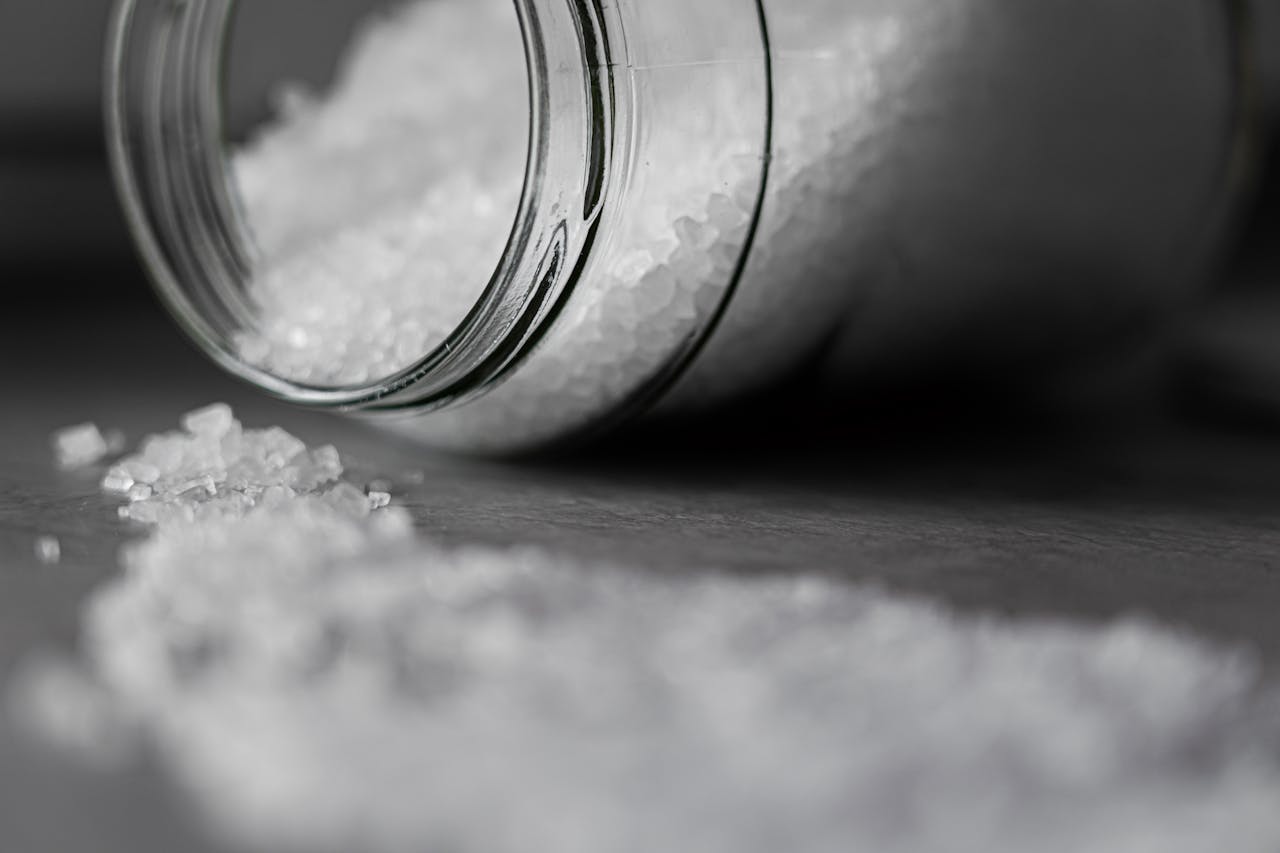Eczema is one of the most common skin conditions in the world, affecting over 100 million adults worldwide. I know a few people that are living with eczema, and I’m well aware of the burden that comes with it. More than a skin condition, eczema comes with many burdens, including extreme itch and physical pain, financial and emotional burdens, as well as burdens on family members and caregivers.
With it being more than skin-deep, researchers are looking to better understand the condition. At this time, there has not been a definitive cause revealed, yet a new study suggests that having a love of salt may be the reason behind one’s itchy skin.
Salty Food and Eczema: What’s The Link
Researchers from the University of California, San Francisco sought to understand non-genetic-related causes of atopic dermatitis (eczema). For the study, they analyzed two sets of data; the first was the urine samples and medical records of 215,832 adults, aged between 30 and 70 years old, from the U.K. biobank, whereas the second set featured data of 13,000 U.S. adults from the National Health and Nutrition Examination Survey.
Through urine samples, researchers were able to tell how much sodium each person was eating. Using medical records, they could view diagnoses of atopic dermatitis, as well as its severity.
According to the findings, published in JAMA Dermatology, participants with higher sodium levels were more likely to have an eczema diagnosis. Using U.K. biobank data, each extra gram of sodium (half a teaspoon of table salt) excreted in urine over 24 hours was associated with an 11% higher risk of an eczema diagnosis; 16% higher odds of having an active case, and 11% higher odds of increased severity.
About the U.S. National Health and Nutrition Examination Survey, an extra daily gram of sodium was linked to a 22% higher risk of an active eczema case.
“This study was the first step in that we were able to show an association between dietary salt and AD in a large population.” – Katrina Abuabara, MD, senior study author
A Salty Skin Condition
Speaking on the findings, Abuabara shared that while sodium is stored in the skin to prevent water loss, and help prevent infection, it may also activate cells in the immune system, “triggering some inflammatory pathways and removing the ‘brakes’ from others.”
While Abuabara’s theory may be true, the study did have its limitations. For one, the study involved only one urinary sample per participant for 24 hours, making it difficult to properly assess the impact of long-term sodium intake.
Eating for Eczema
“I don’t think all eczema is related to salt. I think this is one piece of things that’s probably a trigger for some people.” – Katrina Abuabara, MD, senior study author
Despite leading the study, Abuabara admits that the study has yet to confirm if reducing sodium intake may reduce eczema severity,
“I think it is important to have experimental evidence that reducing dietary salt can actually improve eczema symptoms before we recommend dietary changes specifically for eczema,” says Abuabara.
That said, a high salt diet may definitively not lead to eczema, but it’s not good for your longevity. As much as I enjoy salty food, I also know my limits, and you should too.
To manage your salty intake, try to;
- Focus on eating more fresh foods such as fruits, vegetables, fresh meat, fresh chicken, and fresh fish.
- Buy plain whole-grain rice and pasta instead of products that have added seasoning.
- Rather eat at home when you can, as restaurant foods are often high in sodium.
- Replace salt when cooking with herbs, spices, and citrus zest or juice.
- Avoid using condiments where you can.
- Look out for reduced or low-sodium versions of prepared foods.
- Cut back on high-sodium foods like bread, pizza, cold cuts bacon, cheese, soups, and fast foods.
References
Bermann, R. (2024). Atopic dermatitis: Reducing salt intake could lower eczema risk. https://www.medicalnewstoday.com/articles/too-much-dietary-sodium-may-increase-dermatitis-risk
Mayo Clinic (2019). Sodium: How to tame your salt habit. [online] Mayo Clinic. https://www.mayoclinic.org/healthy-lifestyle/nutrition-and-healthy-eating/in-depth/sodium/art-20045479.
NIH. Halt the Salt: 5 Ways to Cut Down on Sodium and Improve Your Heart Health | NHLBI, NIH. https://www.nhlbi.nih.gov/news/2023/halt-salt-5-ways-cut-down-sodium-and-improve-your-heart-health.
Tian, J., Zhang, D., Yang, Y., Huang, Y., Wang, L., Yao, X., & Lu, Q. (2023). Global epidemiology of atopic dermatitis: a comprehensive systematic analysis and modelling study. The British journal of dermatology, 190(1), 55–61. https://doi.org/10.1093/bjd/ljad339



![women [longevity live]](https://longevitylive.com/wp-content/uploads/2020/01/photo-of-women-walking-down-the-street-1116984-100x100.jpg)










